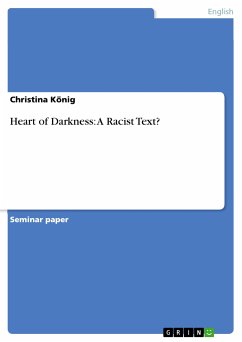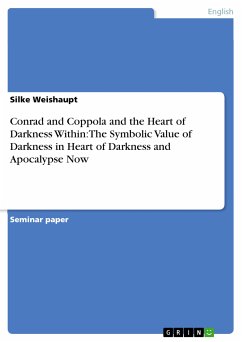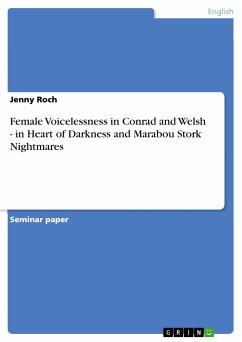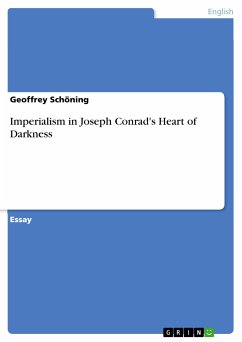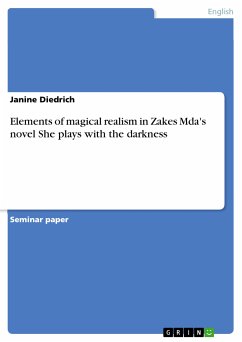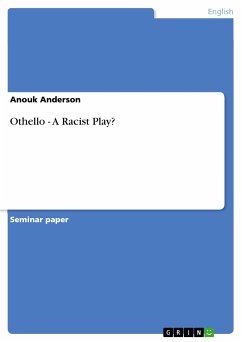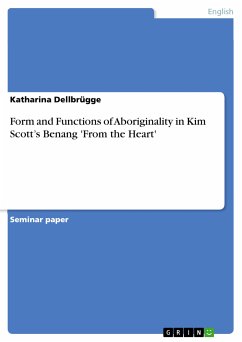Seminar paper from the year 2003 in the subject English Language and Literature Studies - Literature, grade: 2 (B), University of Tubingen (English Philology), course: Proseminar II Literatur: Heart of Darkness and its Transformations, language: English, abstract: The following essay will deal with the question whether or not Joseph Conrad’s Heart of Darkness is a racist text. This question comes up because this novel was written during the age of Victoria, a time of imperialism and colonialism where the term “race” changed its meaning and became a monolithic factor. The term ‘race’ was first used in English literature as denoting a class of people, even a family. In eighteen-century usage it was possible to speak of a race of animals or birds. By the nineteenth century this imprecision was fully recognized, and it was suggested that the term was purely subjective, and illuminated the ‘opinion of the investigator rather than … the object of investigation.’ (1Bolt: 1971, ix). So from then on, racism, which can be defined as “ the belief that races have distinctive cultural characteristics determined by hereditary factors and that this endows some races with an intrinsic superiority over others” (2Wehmeier:2000,1042) was often included or propagated in literary works. As Conrad was a member of the Victorian society it is interesting for today’s readers to examine if he also shared this belief. Furthermore, it has recently (i.e. within the last twentyfive years) been a frequently-discussed topic, because Chinua Achebe, the famous Nigerian author, arose this question. So, first of all, his accusations will be looked at more clearly, in the following, it is to be regarded if these are actually true, and finally, one will see, if a final estimation is possible. 1 Christine Bolt, Victorian Attitudes to Race (London: Routledge & Kegan Paul, 1971) ix. 2 Sally Wehmeier (ed.) Oxford Advanced Learner’s Dictionary of Current English,6th ed. (Oxford: Oxford University Press, 2000) 1042.

